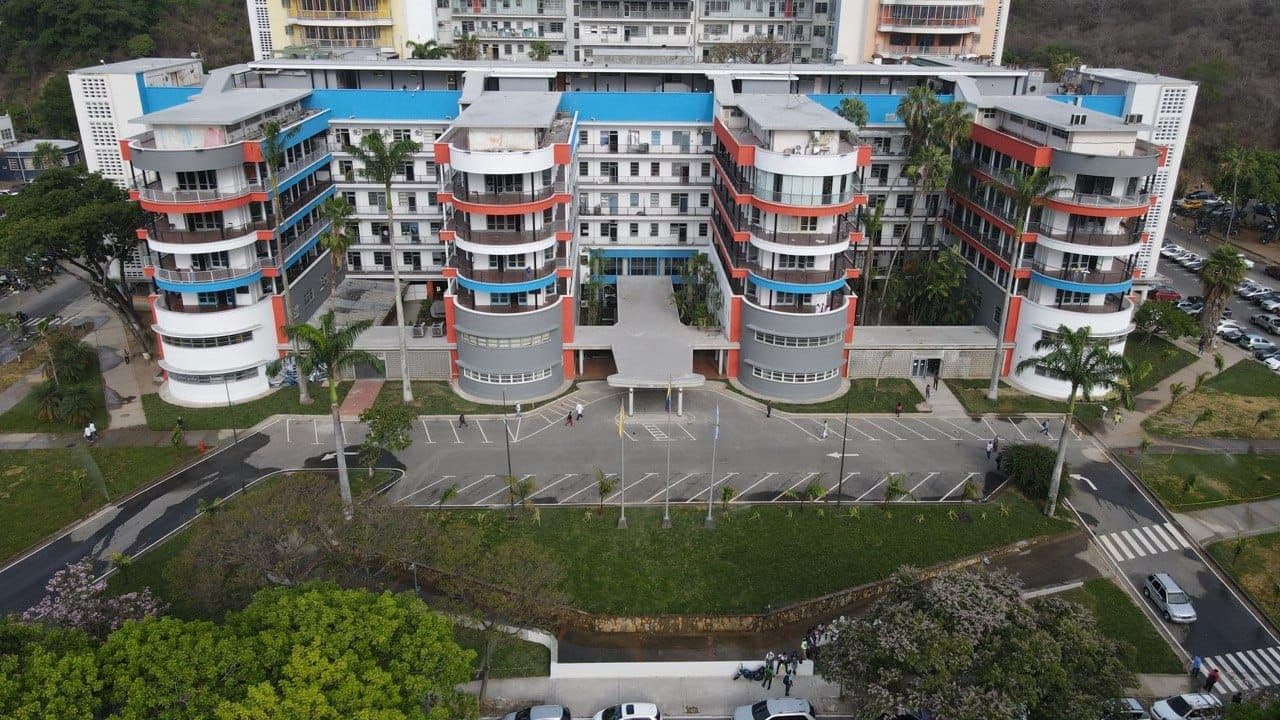
Aerial view of the restored University Clinical Hospital. Photo: Twitter/@@JacquelinePSUV.

Orinoco Tribune – News and opinion pieces about Venezuela and beyond
From Venezuela and made by Venezuelan Chavistas

Aerial view of the restored University Clinical Hospital. Photo: Twitter/@@JacquelinePSUV.
The emergency areas of the University Clinical Hospital of Caracas have been renovated. On Friday, June 2, Venezuelan Vice President Delcy Rodríguez announced the opening of the renovated pediatric emergency areas, the pediatric surgery area, and the pediatrics service, as well as a new neonatal intensive care unit – the only one in the country. The adult emergency and psychiatric services areas have also been revamped, “adapt[ing] to international parameters and protocols for the diagnosis of psychiatric illnesses,” said Vice President Rodríguez.
During a tour of the university hospital, the vice president praised the pediatric emergency wing. In the triage room, she made special mention of the equipment that was installed to have everything necessary to care for seriously ill patients.
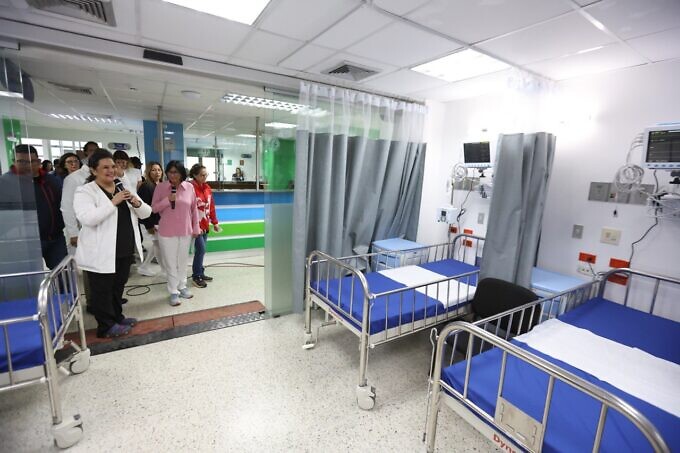
Rodríguez also praised the installation of a state-of-the-art digital ultrasound device, the only one in the country to incorporate artificial intelligence. The instrument is portable and can be moved to other rooms when necessary.
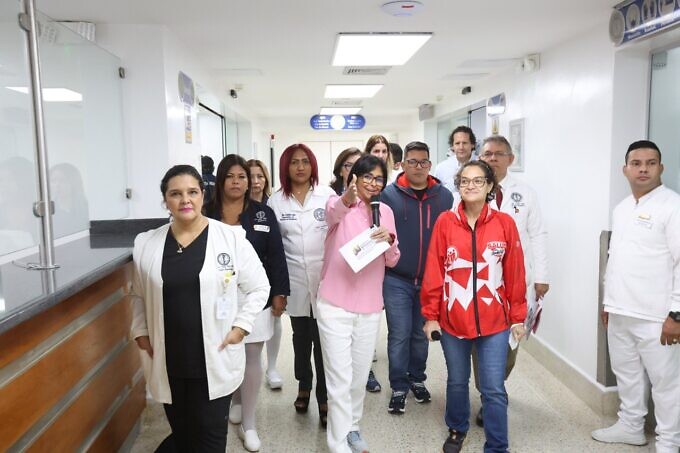
She also highlighted the installation of Venezuela’s first surgical neonatal intensive care unit for premature infants, an inhalation therapy area for patients with respiratory problems, and an intermediate care unit with beds and incubators. Two isolation beds are also operational for patients who need to be kept quarantined or who have a contagious disease.
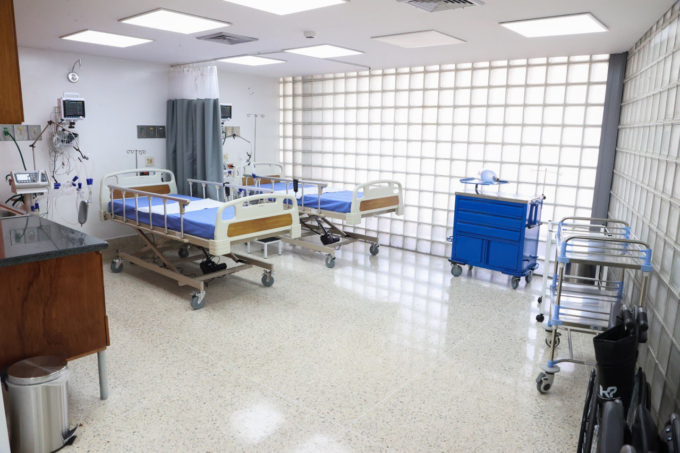
Adult emergency services
A digital X-ray machine has been installed in the adult emergency section, so both patients and physicians can receive X-ray images on their digital devices.
Central University of Venezuela Community Demands Rector’s Resignation After Electoral Fiasco
The director of the University Clinical Hospital, Luis Lira, reported that the adult emergency section, where up to 300 patients are treated everyday, will have 20 beds. He added that eight stations, triage, and four surgical observation beds with multi-parameter machines were installed for stays of up to 48 hours of observation, along with five beds in the intermediate care wing.
Health Minister Magally Gutiérrez added that the fully restored trauma and shock area has also been inaugurated. “It is a space where the patient’s life is saved, where triage is performed. More than one million people are treated here every year,” she said.
President Maduro had placed Vice President Delcy Rodríguez in charge of the University Clinical Hospital restoration project, aiming to turn the hospital into a 100% intelligent hospital with total connectivity. He also approved the resources for the acquisition of the newest nuclear magnetic resonance equipment.
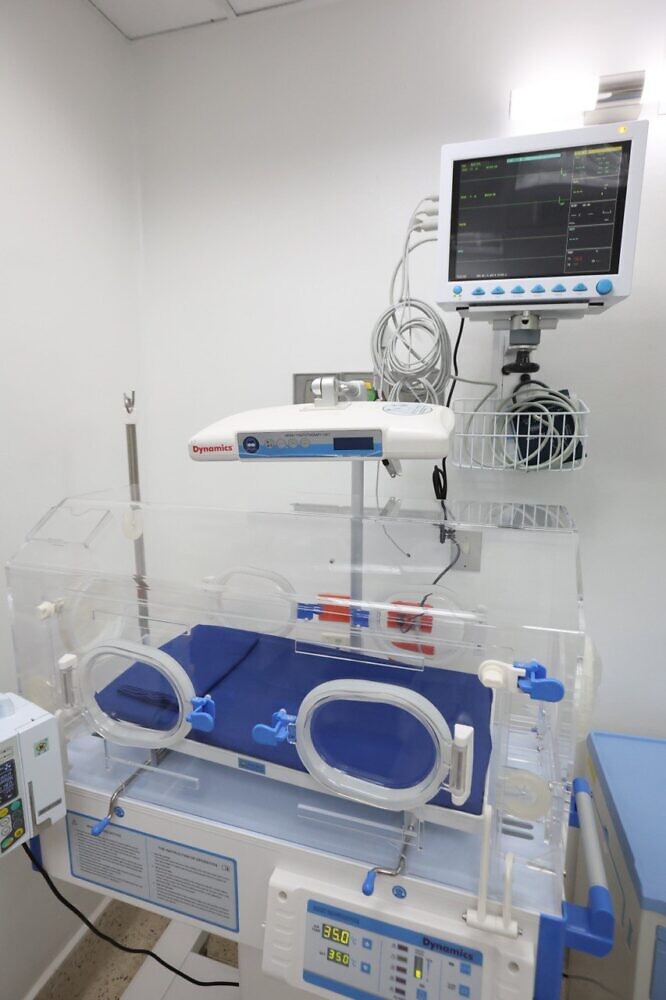
President Maduro announced that the second stage of the restoration works at the University Clinical Hospital will include general surgery, neurosurgery, and sections for treating cardiovascular and infectious diseases.
President Maduro Visits Central University of Venezuela, Inspects Renovation Works (Photos)
Support for the university community
President Maduro ratified all the necessary support for personnel of the University Clinical Hospital to guarantee installation of new facilities.
“We have to complete the recovery process of the University Hospital of Caracas,” the president said in an address to the university community.
“You can count on the Bolivarian government to move forward and do even more than what we have done in the recovery of the architectural heritage of the Central University of Venezuela,” he added.
Reflecting on the opposition of some to the restoration and recovery of the UCV, “are there some people so crazy that they are upset because we have recovered the UCV?” the president wondered. “We are not going to stop because of that; we will continue working in all the spaces until we have a completely new hospital and have recovered the heritage university of the country.”
“It gives us great joy to complete the first stage of recovery, and we are entering the second stage to reach 100% operation of the University Clinical Hospital.”
The president also thanked the Bolivarian National Armed Forces (FANB) for their cooperation in the recovery of schools and health centers through the Military Community Brigades for Education and Health (BRICOMILES) throughout the country.
Translation: Orinoco Tribune
OT/SC/KZ/BLA